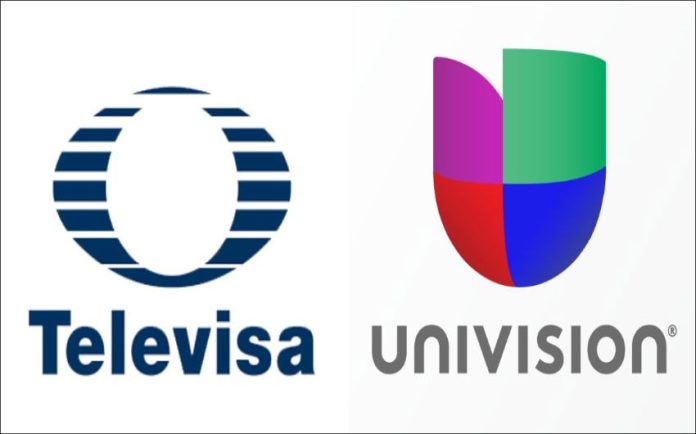Mexico’s top broadcaster Televisa and Univision of the United States have agreed to a US $4.8-billion content merger backed by Japan’s SoftBank that is aimed at launching a Spanish-language streaming service to take on the likes of Netflix.
The deal, which had been widely hinted at in recent days, sent Televisa’s American depositary receipts in New York soaring 8.7% in after-hours trading.
The companies said in a statement that Televisa would combine its media, content and production assets — from soaps to sporting events — with Univision, the large U.S. Spanish-language broadcaster, creating the “global leader in Spanish-language media.”
The new company will aim to launch a global streaming service early next year to tap into a market of 600 million consumers.
“As the definitive global leader in Spanish-language media, Televisa-Univision will have the operating assets, financial scale and audience reach to accelerate its digital transformation and deliver a differentiated streaming proposition to the underserved global Spanish-language population,” the groups said in a statement.
Televisa, which will hold 45% of the merged company, will contribute content valued at US $4.8 billion as well as its four free-to-air channels, 27 pay-television outlets, its Videocine movie studio and Blim TV video-on-demand service.
Univision will pay US $3 billion in cash and $1.5 billion in Univision stock, with the remainder funded by other sources. This will enable Televisa to pay down debt.
The deal was expected to significantly reduce combined net debt leverage and boost margins, the companies said.
As part of the financing for the transaction, SoftBank’s Latin America Fund will lead a US $1 billion debt issue with participation from Google, the Raine Group merchant bank and the venture capital and private equity firm ForgeLight, a current investor in Univision.
Univision’s assets include the Univision and UniMás networks, nine Spanish-language cable networks, 61 television stations and 58 radio stations, as well as a recently-launched streaming service, PrendeTV.
“This strategic combination generates significant value for shareholders of both companies and will allow us to more efficiently reach all Spanish-language audiences with more of our programming,” said Emilio Azcárraga, executive chair of Televisa.
Content will largely be produced in Mexico, and “the combined financial strength will allow the company to invest in the anticipated launch of its global streaming platform, which is expected in early 2022,” the statement said.
Wade Davis, Univision chief executive, will lead the merged company, with Televisa’s Alfonso de Angoitia as executive chair. Marcelo Claure, chief executive of SoftBank, will become vice-chair.
The companies have been closely connected for more than two decades, and Televisa said it expected the deal would enable it to “strengthen our balance sheet and focus on growth opportunities at our telecom business”, which it will retain, as well as production facilities and Mexican licenses.
© 2021 The Financial Times Ltd. All rights reserved. Please do not copy and paste FT articles and redistribute by email or post to the web.
